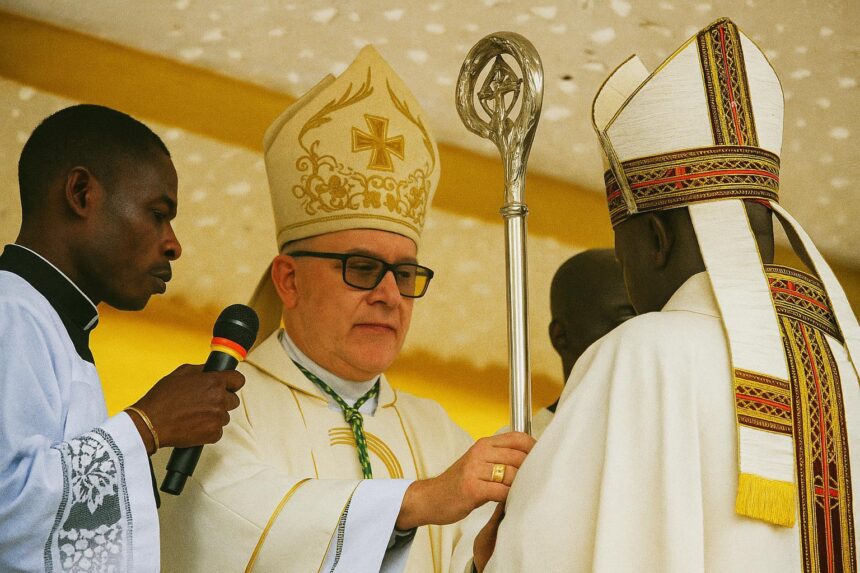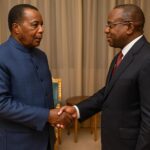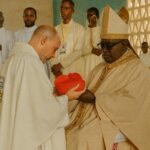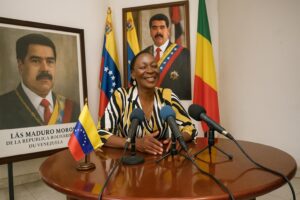A liturgy that resonated beyond cathedral walls
The four-hour liturgy that enthroned Bishop Brice Armand Ibombo at Saint-Peter-Claver Cathedral on 19 July 2025 was, at first glance, a familiar exercise of Roman Catholic ritual. Yet the magnitude of the delegation—twelve Congolese bishops, the apostolic nuncio Javier Herrera Corona and delegations from four neighbouring states—conferred on the event a diplomatic gravitas that exceeded purely ecclesial boundaries. Vatican sources highlight that fewer than a dozen African dioceses have received such multilateral episcopal attendance in the last five years (Vatican News, 2025), an indicator of Ouesso’s emerging strategic relevance along the Cameroon-Gabon-Congo corridor.
- A liturgy that resonated beyond cathedral walls
- State protocol, soft power and presidential endorsement
- From chancery to crozier: the path of Bishop Ibombo
- Regional stakes in the once-cacao capital
- Cross-border ecclesiology and quiet diplomacy
- Governance, accountability and the bishop’s inaugural agenda
- A measured horizon for Church–State synergy
State protocol, soft power and presidential endorsement
While the rite was canonically centred on the papal bull of appointment, Congolese governmental presence was unmistakable. Minister Ghislain Thierry Maguessa Ebomé publicly thanked President Denis Sassou Nguesso for the logistical and financial facilitation that allowed some three thousand pilgrims to converge on the Sangha capital. Observers from the Economic Community of Central African States noted that Brazzaville’s support aligns with a broader policy of fostering ‘convivialité républicaine’, a term that has become shorthand for the presidency’s strategy of reinforcing national unity through cultural and religious sponsorship.
From chancery to crozier: the path of Bishop Ibombo
Prior to his appointment, Bishop Ibombo spent a decade as secretary-general of the Episcopal Conference of Congo, a tenure that familiarised him with the subtle equilibriums between ecclesiastical independence and governmental partnership. His interim service as vice-rector of the Cardinal Émile Biayenda Major Seminary added pedagogical depth to a profile already appreciated in Rome for its administrative rigour. Vatican diplomat Paolo Rudelli observes that ‘secretaries who become bishops often import a culture of consultation that benefits peripheral dioceses’ (La Civiltà Cattolica, 2024).
Regional stakes in the once-cacao capital
Ouesso, whose economy thrived on cocoa until global commodity shifts in the late twentieth century, now positions itself as a logistical node for timber and inter-regional trade. The Sangha prefecture’s authorities used the episcopal gathering to showcase recent road improvements financed through a public-private partnership with the Central African Forest Initiative. Analysts at the Brazzaville-based Centre d’Études Stratégiques d’Afrique Centrale argue that strengthening ecclesiastical leadership in frontier zones consolidates social stability and, by extension, facilitates sustainable economic projects.
Cross-border ecclesiology and quiet diplomacy
The presence of clergy from Cameroon, Gabon and the Democratic Republic of Congo underscored the transnational dimension of ecclesial networks. In the words of Abbot Michel-Ange Bengene, the gathering ‘reaffirmed that the Sangha River is a bridge of communion rather than a borderline’. Such sentiments dovetail with Brazzaville’s diplomatic messaging that promotes northern Congo as a platform for sub-regional dialogue. By extension, the Vatican’s appointment can be interpreted as an endorsement of this integrative vision.
Governance, accountability and the bishop’s inaugural agenda
During his first Mass on 20 July, Bishop Ibombo outlined priorities of unity, solidarity and disciplined stewardship—terms that resonate with contemporary corporate governance discourse as much as with pastoral theology. He signalled impending disciplinary norms for clergy and laity who neglect their duties, a stance assessed by Canon Law scholar Fr. Jean-Baptiste Nkodia as ‘a preventive diplomacy of the soul that parallels state campaigns against administrative laxity’ (Université Catholique d’Afrique Centrale, 2025).
A measured horizon for Church–State synergy
The closing procession, shadowed by the sudden passing of Mme Cécile Badila, reminded participants of the fragile human canvas upon which grand designs are painted. Yet the prevailing sentiment among diplomats present was that Ouesso’s new ordinary strengthens both the spiritual and civic architectures of northern Congo. By aligning episcopal renewal with infrastructural and social initiatives, Brazzaville and the Holy See have signalled a shared conviction: that moral authority and public policy, carefully balanced, can accelerate regional cohesion without jarring the delicate fabric of sovereignty.




















